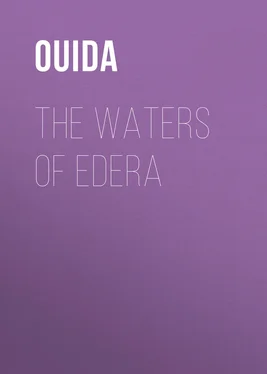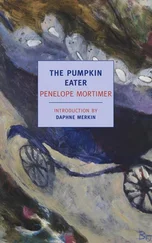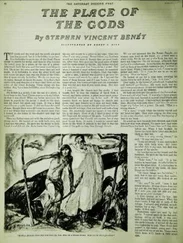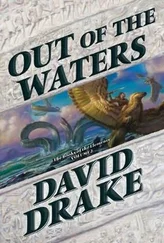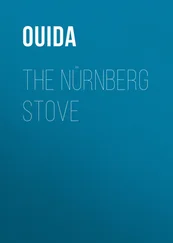Ouida - The Waters of Edera
Здесь есть возможность читать онлайн «Ouida - The Waters of Edera» — ознакомительный отрывок электронной книги совершенно бесплатно, а после прочтения отрывка купить полную версию. В некоторых случаях можно слушать аудио, скачать через торрент в формате fb2 и присутствует краткое содержание. Жанр: foreign_prose, literature_19, foreign_antique, на английском языке. Описание произведения, (предисловие) а так же отзывы посетителей доступны на портале библиотеки ЛибКат.
- Название:The Waters of Edera
- Автор:
- Жанр:
- Год:неизвестен
- ISBN:нет данных
- Рейтинг книги:3 / 5. Голосов: 1
-
Избранное:Добавить в избранное
- Отзывы:
-
Ваша оценка:
- 60
- 1
- 2
- 3
- 4
- 5
The Waters of Edera: краткое содержание, описание и аннотация
Предлагаем к чтению аннотацию, описание, краткое содержание или предисловие (зависит от того, что написал сам автор книги «The Waters of Edera»). Если вы не нашли необходимую информацию о книге — напишите в комментариях, мы постараемся отыскать её.
The Waters of Edera — читать онлайн ознакомительный отрывок
Ниже представлен текст книги, разбитый по страницам. Система сохранения места последней прочитанной страницы, позволяет с удобством читать онлайн бесплатно книгу «The Waters of Edera», без необходимости каждый раз заново искать на чём Вы остановились. Поставьте закладку, и сможете в любой момент перейти на страницу, на которой закончили чтение.
Интервал:
Закладка:
It had been Etruscan, it had been Latin, it had been Longobardo, it had been Borgian and Papal; through all these changes a fortified city, then a castellated town, then a walled village; and a village it now remained. It will never be more; before many generations pass it will probably have become still less; a mere tumulus, a mere honeycomb of buried tombs. It was now perishing, surely though slowly, but in peace, with the grass growing on its temple stairs and the woodbine winding round its broken columns.
The trained and stored intellect of Don Silverio could set each period of its story apart, and read all the vestiges remaining of each. Ruscino was now to all others a mere poverty-stricken place, brown and gaunt and sorrowful, scorching in the sun, with only the river beneath it to keep it clean and alive. But to him it was as a palimpsest of surpassing value and interest, which, sorely difficult to decipher, held its treasures close from the profane and the ignorant, but tempted and rewarded the scholar, like the lettering on a Pompeian nuptial ring, the cyphers on a funeral urn of Herculaneum. "After all, my lot might be worse than it is," he thought with philosophy. "They might have sent me to a modern manufacturing town in one of the Lombard provinces, or exiled me to some native settlement in Eritrea."
Here, at least, he had history and nature, and he enjoyed thousands of hours undisturbed in which to read or write, or muse and ponder on this chronicle of brick and stone, this buried mass of dead men's labours and of dead men's dust.
Doubtless, his manuscripts would lie unknown, unread; no man would care for them; but the true scholar cares neither for public not posterity; he lives for the work he loves; and if he knows that he will have few readers in the future—maybe none—how many read Grotius, or Boethius, or Chrysostom, or Jerome?
Here, like a colony of ants, the generations had crowded one on another, now swept away by the stamp of a conqueror's heel and now succeeded by another toiling swarm, building anew each time out of ruin, undaunted by the certainty of destruction, taught nothing by the fate of their precursors. From the profound sense of despair which the contemplation of the uselessness of human effort, and the waste of human life, produces on the scholar's mind, it was a relief to him to watch the gladness of its river, the buoyancy of its currents, the foam of white blossom on its acacia and syringa thickets, the gold sceptres and green lances of its iris-pseudacorus, the sweep of the winds through its bulrushes and canebreaks, the glory of colour in the blue stars of its veronica, the bright rosy spikes of its epilobium. The river seemed always happy, even when the great rainfall of autumn churned it into froth and the lightnings illumined its ink-black pools.
It was on the river that he had first made friends with Adone, then a child of six, playing and splashing in the stream, on a midsummer noon. Don Silverio also was bathing. Adone, a little nude figure, as white as alabaster in the hot light, for he was very fair of skin, sprang suddenly out of the water on to the turf above where his breeches and shirt had been left; he was in haste, for he had heard his mother calling to him from their fields; an adder started out of a coil of bindweed and would itself round his ankle as he stooped for his clothes.
The priest, standing waist-deep in the river a few yards away, saw it before the child did, and cried out to him: "Stand still till I come! Be not afraid!" Adone understood, and, although trembling with terror and loathing as he realised his danger, and felt the slimy clasp of the snake, remained motionless as he was bidden to do. In a second of time the priest had leaped through the water to his side, seized the adder, and killed it.
"Good boy," he said to the child. "If you had moved your foot the creature would have bitten you."
Adone's eyes filled with tears.
"Thank you, sir; thank you for mother," he said very gently, for he was a shy child, though courageous.
The priest stroked his curls.
"There is death in the grass very often. We should not fear death, but neither should we run risk of it uselessly, especially when we have a mother whom it would grieve. Come and bathe at this spot, at this hour, to-morrow and every day, if you like. I will be here and look after you, you are little to be alone."
They were often together from that day onwards.
The brutishness and greed of his flock oppressed him. He was sent here to have care of their souls, but where were their souls? They would all have sold them to the foul fiend for a mess of artichokes fried in oil. In such a solitude as this he had been glad to be able to teach and move the young malleable mind of Adone Alba; the only one of them who seemed to have any mind at all. Adone also had a voice as sweet as a nightingale in the syringa bushes in May; and it pierced the gloom of the old naked gaunt church as a nightingale's thrills through the dark hour before dawn.
There was no other music in that choir except the children's or youths' voices; there was nothing to make music with except those flexible pipes of the boyish throats; and Don Silverio loved and understood choral music; he had studied it in Rome. Adone never refused to sing for him, and when the voice of adolescence had replaced that of childhood, he would still stand no less docilely by the old marble lectern, and wake the melodies of early masters from the yellow pages.
The church was as damp as a vault of the dead; cold even when the dog-star reigned in the heavens. The brasses and bronzes were rusted with moisture, and the marbles were black with the spores of mould; rain dripped through the joints of the roof, and innumberable sparrows made their nests there; the mosaics of the floor were green from these droppings, and from those of the rain; the sun never entered through any of the windows, which were yellow with age and dust; but here, with a lantern for their only light, they solaced each other with the song of the great choral masters. Only Adone, although he never said or showed it, was glad when the huge key groaned in the lock of the outer door, and he ran out into the evening starlight, down the steep streets, across the bridge, and felt the fresh river air blowing on him, and heard the swirling of the water amongst the frost-stiffened canes, and saw far off in the darkened fields the glimmer of a light—the light of home.
That old home was the dearest thing on earth to the young man. He had never been away from it but once, when the conscription called him. In that time, which had been to him like a nightmare, the time of his brief exile to the army, because he was the only son of a widow, he had been sent to a northern city, one of commerce and noise and crowded, breathless life; he had been cooped up in it like a panther in a den, like a hawk in a cage. What he saw of the vices and appetites of men, the pressure of greed and of gain, the harsh and stupid tyranny of the few, the slavish and ignoble submission of the many, the brutish bullying, the crouching obedience, the deadly routine, the lewd licence of reaction—all filled him with disdain and with disgust. When he returned to his valley he bathed in the waters of Edera before he crossed his mother's threshold.
"Make me clean as I was when I left you!" he cried, and took the water in the hollow of his hands and kissed it.
But no water flows on the earth, from land to sea, which can wholly cleanse the soul as it cleanses the body.
That brief time under arms he cursed as thousands of youths have cursed it. Its hated stigma and pollution never wholly passed away. It left a bitterness on his lips, a soil upon his memories. But how sweet to him beyond expression, on his return, were the sound of the rushing river in the silence of the night, the pure odours of the blossoming beanfields, the clear dark sky with its radiant stars, the sense of home, the peace of his own fields!
Читать дальшеИнтервал:
Закладка:
Похожие книги на «The Waters of Edera»
Представляем Вашему вниманию похожие книги на «The Waters of Edera» списком для выбора. Мы отобрали схожую по названию и смыслу литературу в надежде предоставить читателям больше вариантов отыскать новые, интересные, ещё непрочитанные произведения.
Обсуждение, отзывы о книге «The Waters of Edera» и просто собственные мнения читателей. Оставьте ваши комментарии, напишите, что Вы думаете о произведении, его смысле или главных героях. Укажите что конкретно понравилось, а что нет, и почему Вы так считаете.
